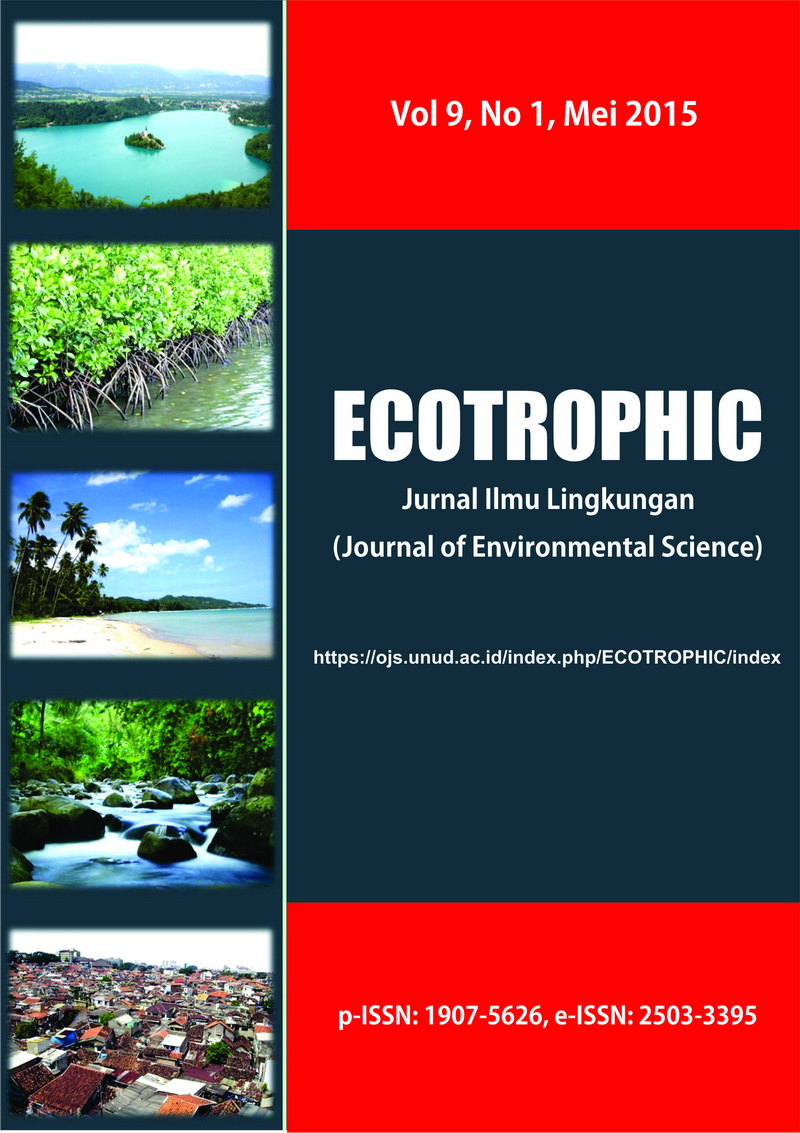STRATEGI PENENTUAN LOKASI DAN KEBUTUHAN LAHAN TPS (TEMPAT PENAMPUNGAN SEMENTARA SAMPAH) BERDASARKAN FUNGSI KAWASAN DI KOTA DENPASAR
Abstract
The percentage of solid waste services Denpasar City in 2013 reached 51,8 percent, the limited number and capacity TPS in Denpasar not meet the needs of waste management services in denpasar. The study was to examine the relevant strategies appropriate to the criteria and requirements related to the determination of the location of TPS and the land need. The position of the study is Part Of The City (BWK) Central in Denpasar. Analysis of technical aspects will evaluation garbage production in order to know the ideal needs of TPS, the evaluation of TPS placement based on the function of the area and the land needed. Environmental aspect will analyze the environmental risk due to the presence of a TPS. Analysis of public opinion and the behavior of people will use a questionnaire in the collection of data to be analyzed with qualitative methods as a consideration in determining the location and design of a TPS. Institutional aspect will be evaluated about the understanding DKP (Office of Cleaning and Gardening Services) employees of the City of Denpasar in the management of garbage, especially in the TPS. As for determining the direction and strategy of the management of garbage SWOT analysis was used.Based on the analysis, the need for the addition of TPS to improve the capacity of TPS, the shape of TPS had comply standard of SNI and environmental safety factor. Additions and changes in the shape of TPS also effect land requirement, the total area of land that must be reserved for TPS is 0,40 hectares. Determining the location of TPS is based on the need of the type of TPS over the spatial pattern. Analysis of public opinion on the determination of the location of TPS, it is obtained that the distance of a TPS with the source must be relatively close and the land use is a vacant land. It is also suggested optimizing the role of the DKP of Denpasar by increasing socialization and community development programs in waste management.


